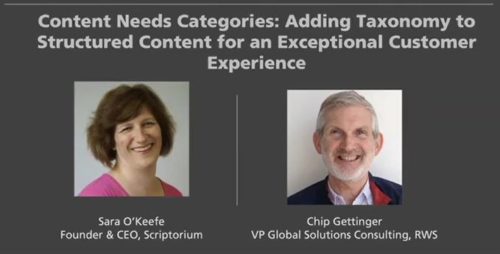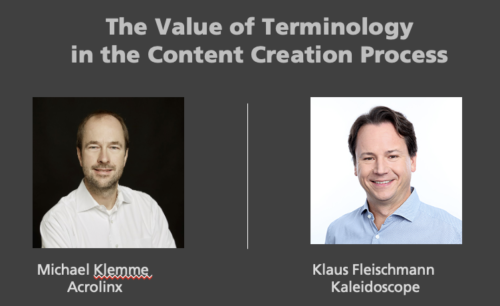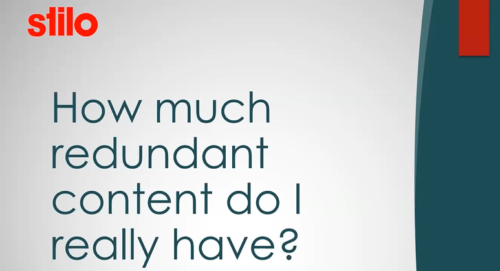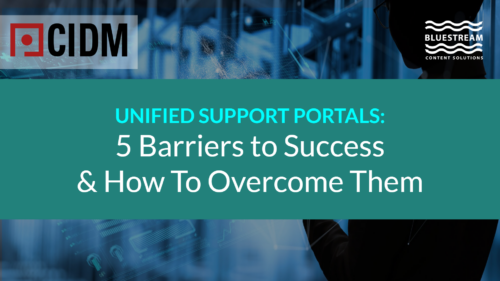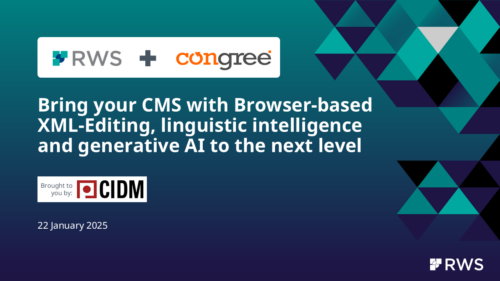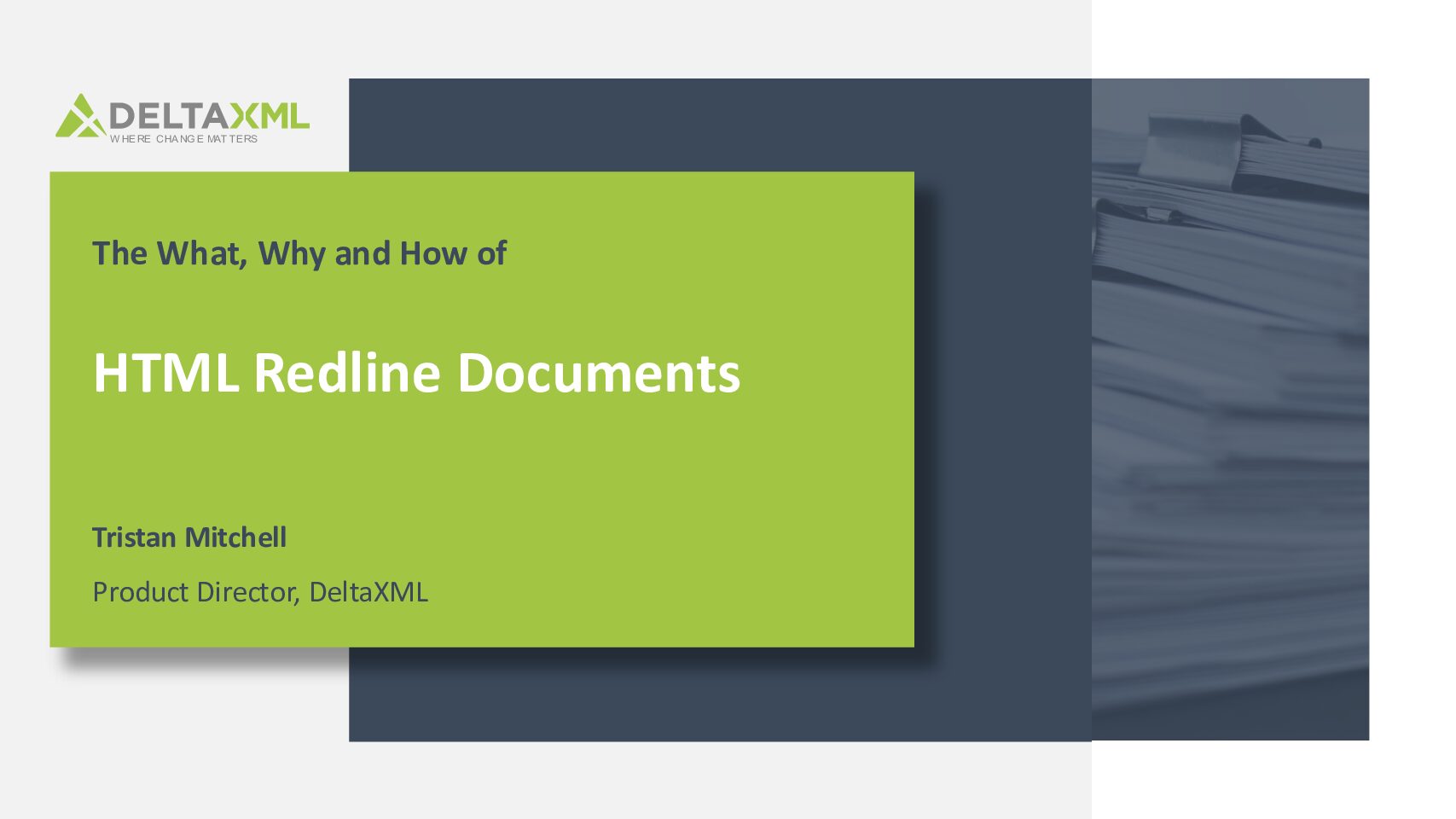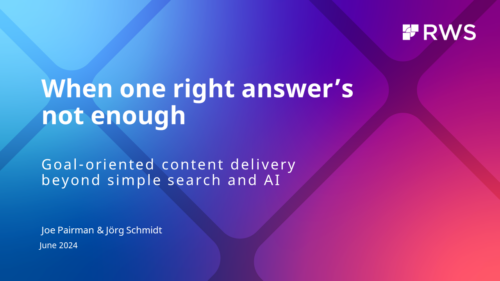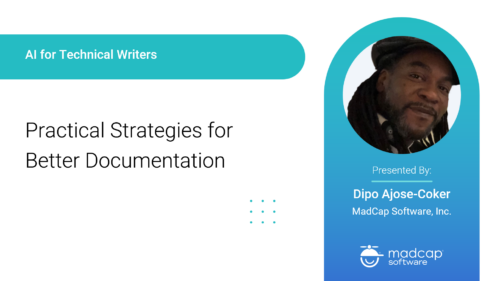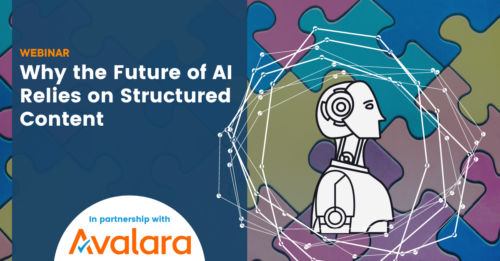-
Recorded: February 23, 2022 Structured content provides numerous benefits for organizations with authoring, managing, and delivering information. Perhaps your organization has realized these benefits—but what’s next? A formal content classification system, or a taxonomy, provides a framework that supports search, filtering, classification, consistent terminology, and more. The combination of taxonomy and structured content opens up compelling possibilities for digital delivery. Add continuous updates and advancements in business data, and you can transform the customer experience—but you may feel a little exposed out on the leading edge of technology. Sarah and Chip will present and discuss emerging trends, techniques, and technology for your digital information initiatives. During the webinar you’ll learn:
- How do you select and manage a good taxonomy?
- Classifying content – human, machine, or a combination?
- Coordinating taxonomy terms across various teams and languages
- Taking advantage of Semantic AI
- Business drivers examining tagging quality vs. quantity
- Best practices and actions for you
-
Recorded: April 13, 2022

 Presented by Michael Klemme and Klaus Fleischmann
Presented by Michael Klemme and Klaus Fleischmann
Terminology is at the core of great content. When used consistently, it helps you communicate precisely and efficiently, which is an approach to your brand communication. It also makes your content accurate.
But it’s important to have a sound process in place to manage your terminology. Join us and learn how to:
-
Make sure all stakeholders have input into your terminology set
-
Set a process for consent and approval of your terms
-
Make sure you have a consistent and failsafe process to
-
Have all your terms for checking in Acrolinx, as the content quality solution of choice
-
Make sure all terminology action is concentrated in quickTerm, as the leading terminology system
-
Michael Klemme is a Senior Solutions Architect at Acrolinx. He advises new and existing customers on how they can efficiently integrate Acrolinx into their processes and helps partners to develop integrations.
Klaus Fleischmann studied translation and IT in Vienna, holds an MA in Conference Interpreting from Monterey, California, and a MAS in Technical Communication from Krems, Austria. In 1996, he founded Austria-based Kaleidoscope, a company implementing content, translation, and terminology management processes for internationally active companies. Kaleidoscope develops online collaboration software for enterprise-level terminology workflow, translator query management, in-country review etc., making the translation quality process comprehensible and strategically manageable. In 2007, he became CEO of Austria´s leading LSP, Eurocom Translation Services GmbH. Always active in the industry, Klaus got voted into the Gala Board of Directors in 2015 and 2017. -
-
April 6, 2022 Content reuse is one of the many advantages of moving to DITA and a structured standard. It helps us reduce the amount of overall content we have, improve consistency, and decrease redundancy. However, it is difficult to visualize this value before the conversion takes place. Estimates can be off, and it is hardly ever clear how much content we can actually reuse from our documentation. Typos and partial matches only complicate our futile estimates. Narrowing the scope of this approximation by investigating similar matches in our source content before conversion can provide valuable insight to the potential benefits of moving to a structured standard. Join TJ Dhaliwal in this session as he uses Stilo’s Analyzer and Migrate to investigate source content for similar and exact matches. Then, further use that information to plan for conrefs, keyrefs, and topicrefs before any transformation takes place. Conclude by deduplicating exact topic matches and realizing some of the potential that was uncovered in the beginning. Presented by: TJ Dhaliwal is a Technical Sales Product Specialist at Stilo, helping customers uncover solutions to their content conversion needs. With a strong technical background in engineering combined with a passion for public speaking, he’s been able to successfully bridge the gaps between project stakeholders. As a problem solver, TJ has helped several enterprise-level companies convert tens of thousands of pages of their content to DITA. He’s recently taken lead on and helped bring to market Stilo’s newest product, Analyzer.
-
January 12, 2022 Moving to structured authoring and implementing a CMS are critical projects that will generate long-term efficiency gains and significant savings. But before you get there, there are great hurdles to overcome. First and foremost, there's winning budget approval from your execs, who will have a singular focus on risk and ROI. Second, you need to maintain a high level of commitment and buy-in from those executives over the years that re-engineering of content production can last. Too many content restructuring projects fail or don’t even start because they cannot demonstrate a quick and tangible return on investment - and this is where Dynamic Content Delivery changes the game. Dynamic Content Delivery provides outstanding content experiences to your users and creates immediate value for your company without requiring a big bang in your writing process. It earns you internal support, money, and time you can leverage to optimize your content restructuring process. In this webinar, you will learn:
- How Dynamic Content Delivery generates value from your existing content, no matter the writing tools and methods you are using now
- How to achieve quick wins and build a fast ROI to gain support from your Execs for your content project
- How to optimize your project to move to structured authoring and make it a success
-
February 15, 2022 Just putting your technical documentation on your webpage as a PDF for download will not make you a content hero. PDF is a given – a fundamental requirement. However, both business leaders and end customers expect more than just a documentation portal or a well-designed PDF. They want contextually relevant, personalized, consistent, conversational, and scalable content experiences. But how to deliver on this expectation? In this session, Stefan Gentz, Senior Worldwide Evangelist for Technical Communication at Adobe, will share some insights from the recent Adobe-commissioned Forrester study. Forrester surveyed 450 decision-makers on Content Experience Management to understand how global brands deliver relevant and contextual experiences across touchpoints. He will explore the design of positive customer journeys from marketing to technical support and self-service and back to sales – experiences that provide 360° content experience for your customers and handhold them across their whole content journey. Presented by: Stefan’s mission is to inspire enterprises and technical writers around the world and show how to create compelling technical communication content with the Adobe Technical Communication tools. He is also a certified Quality Management Professional (TÜV), ISO 9001 / EN 15038 auditor, ISO 31000 Risk Management expert, and Six Sigma Champion. As a sought-after keynote speaker and moderator at conferences around the world, he travels around the globe half of the year. Besides that, he has been the European Ambassador for the Globalization and Localization Association (GALA) for many years, a member of the tekom Conference Advisory Board for several years, and is now a member of the tekom iiRDS working group for Intelligent Information and member of the OASIS DITA Adoption Committee. In 2016, Stefan Gentz was awarded by MindTouch as one of the Top 25 Leading Content Strategist Influencers in the world and as one of the Top 25 Content Experience Influencers in the world in 2017. Stefan Gentz on LinkedIn Stefan Gentz on XING @stefangentz on Twitter www.adobe.com
-
Recorded on February 20, 2025
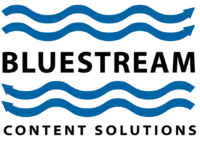 Organizations often struggle with deploying unified portals for their technical support documentation due to a variety of challenges. These challenges can stem from a lack of resources, insufficient understanding of user needs, and difficulties in creating and maintaining comprehensive documentation. This webinar will explore the reasons behind the hesitance to implement unified portals and suggest successful approaches to overcome these obstacles.Presented by Andrew Douglas
Organizations often struggle with deploying unified portals for their technical support documentation due to a variety of challenges. These challenges can stem from a lack of resources, insufficient understanding of user needs, and difficulties in creating and maintaining comprehensive documentation. This webinar will explore the reasons behind the hesitance to implement unified portals and suggest successful approaches to overcome these obstacles.Presented by Andrew Douglas Andrew Douglas, Business Development Manager @BlueStream 25 years in SaaS based Consultative Software Sales. Consultative/Solution Selling approach to position value driven Enterprise class CCMS and Publishing platform. [email protected]
Andrew Douglas, Business Development Manager @BlueStream 25 years in SaaS based Consultative Software Sales. Consultative/Solution Selling approach to position value driven Enterprise class CCMS and Publishing platform. [email protected] -
Recorded on February 26, 2025
 Join us for an insightful webinar showcasing how content can be seamlessly generated from existing data sources rather than manually crafted, ensuring accuracy, consistency, and efficiency.This session will explore real-world examples from AMD and Fluid Topics, illustrating how automated processes turn technical data into professional, readable documentation at scale.We'll demonstrate:- Automated Register Documentation: See how CPU specifications transform into organized, structured documentation, stored in a database, then delivered as HTML straight to the documentation portal.- Hands-Free API Doc Conversion: Discover how API information is converted to DITA and integrated into CCMS to enrich comprehensive technical guides and manuals.- Instant Release Notes Generation: Learn how JIRA-based data automatically generates release notes in sync with new versions, ensuring timely updates without human intervention.Presented by Fabrice Lacroix and Doug Brook
Join us for an insightful webinar showcasing how content can be seamlessly generated from existing data sources rather than manually crafted, ensuring accuracy, consistency, and efficiency.This session will explore real-world examples from AMD and Fluid Topics, illustrating how automated processes turn technical data into professional, readable documentation at scale.We'll demonstrate:- Automated Register Documentation: See how CPU specifications transform into organized, structured documentation, stored in a database, then delivered as HTML straight to the documentation portal.- Hands-Free API Doc Conversion: Discover how API information is converted to DITA and integrated into CCMS to enrich comprehensive technical guides and manuals.- Instant Release Notes Generation: Learn how JIRA-based data automatically generates release notes in sync with new versions, ensuring timely updates without human intervention.Presented by Fabrice Lacroix and Doug Brook Fabrice Lacroix is a serial entrepreneur and a technology pioneer. He has been working for 25 years on the development of innovative solutions around search technology, content enrichment and AI. He is the founder of Fluid Topics, the leading Content Delivery Platform that reinvents how users search, read and interact with technical documentation.
Fabrice Lacroix is a serial entrepreneur and a technology pioneer. He has been working for 25 years on the development of innovative solutions around search technology, content enrichment and AI. He is the founder of Fluid Topics, the leading Content Delivery Platform that reinvents how users search, read and interact with technical documentation. Doug Brook is the Director of Technical Documentation and Localization for adaptive computing at Advanced Micro Devices, Inc. (AMD). Throughout 20+ years in senior management of technical content organizations, he has led evolutions of information resources to improve user experience for numerous high-tech companies, large and small. A past Society for Technical Communication (STC) panelist, he holds undergraduate and graduate degrees from Carnegie Mellon University. He has successfully navigated technical documentation teams through several corporate acquisitions and has introduced new authoring systems and content delivery platforms multiple times. As an experienced technical writer, educator, and theatre artist, he leverages a broad perspective of how to effectively serve diverse audience types and how to optimize processes for people to more effectively serve them.
Doug Brook is the Director of Technical Documentation and Localization for adaptive computing at Advanced Micro Devices, Inc. (AMD). Throughout 20+ years in senior management of technical content organizations, he has led evolutions of information resources to improve user experience for numerous high-tech companies, large and small. A past Society for Technical Communication (STC) panelist, he holds undergraduate and graduate degrees from Carnegie Mellon University. He has successfully navigated technical documentation teams through several corporate acquisitions and has introduced new authoring systems and content delivery platforms multiple times. As an experienced technical writer, educator, and theatre artist, he leverages a broad perspective of how to effectively serve diverse audience types and how to optimize processes for people to more effectively serve them.
-
Recorded on January 22, 2025
 Subject Matter Experts (SME) play an ever-increasing role in your authoring processes. But they are not XML experts. Discover how you can enable them to create content that is consistent in terms of structure, language and terminology by modernizing and enhancing your (Component) Content Management with:
Subject Matter Experts (SME) play an ever-increasing role in your authoring processes. But they are not XML experts. Discover how you can enable them to create content that is consistent in terms of structure, language and terminology by modernizing and enhancing your (Component) Content Management with:- Browser-based authoring designed for users with no XML expertise
- Integrated linguistic intelligence to facilitate terminology design and usage, and GenAI for efficiency, consistency, and content reuse
- Collaborative features for seamless editing and review, taking the pain out of longwinded and error prone review cycles
Presented by:
 Torsten Machert, Congree
Torsten studied Russian and Spanish. After he graduated at the Humboldt University, Berlin, he spent more that 20 years in the CMS business and became an industry expert in SGML and XML based management and publication processes.
As Senior Consultant with Congree he can perfectly combine his linguistic and XML background.
Torsten Machert, Congree
Torsten studied Russian and Spanish. After he graduated at the Humboldt University, Berlin, he spent more that 20 years in the CMS business and became an industry expert in SGML and XML based management and publication processes.
As Senior Consultant with Congree he can perfectly combine his linguistic and XML background.
 André Schlotz, RWS
André Schlotz is VP Global Automotive and Manufacturing Solutions, RWS Group. He helps organizations to digitalize their content supply chain through structured content authoring, component content management and single source content delivery. Before joining RWS in 2013 he was holding various management positions in manufacturing companies in product development, aftersales, process organization and IT. He has more than 20 years of experiences in process consulting, planning, building and running digital industry solutions.
André Schlotz, RWS
André Schlotz is VP Global Automotive and Manufacturing Solutions, RWS Group. He helps organizations to digitalize their content supply chain through structured content authoring, component content management and single source content delivery. Before joining RWS in 2013 he was holding various management positions in manufacturing companies in product development, aftersales, process organization and IT. He has more than 20 years of experiences in process consulting, planning, building and running digital industry solutions.
-
Recorded on October 16, 2024
 HTML is used not only as a final delivery format but increasingly as the source format for documentation of all kinds, whether that’s internal product designs or customer-focused technical documentation. Understanding change in those documents is a vital part of your content management workflow.
Join us as we explore the ins and outs of HTML redline documents, looking at how to identify change in HTML, how to visualise it, and how it fits into your toolkit. From text to tables, MathML to SVG, come and discover how to decide what matters in your redline output.
Presented by: Tristan Mitchell, DeltaXML
HTML is used not only as a final delivery format but increasingly as the source format for documentation of all kinds, whether that’s internal product designs or customer-focused technical documentation. Understanding change in those documents is a vital part of your content management workflow.
Join us as we explore the ins and outs of HTML redline documents, looking at how to identify change in HTML, how to visualise it, and how it fits into your toolkit. From text to tables, MathML to SVG, come and discover how to decide what matters in your redline output.
Presented by: Tristan Mitchell, DeltaXML
 Tristan is Product Director at DeltaXML, a technology company with world-leading software products for managing change in structured content. He has a deep understanding of DeltaXML’s product suite and loves to help customers create extra value in their content using change management. Tristan is a father to three daughters, a movie lover, and a keen runner.
Tristan is Product Director at DeltaXML, a technology company with world-leading software products for managing change in structured content. He has a deep understanding of DeltaXML’s product suite and loves to help customers create extra value in their content using change management. Tristan is a father to three daughters, a movie lover, and a keen runner.
-
Recorded on: November 14, 2024
 Presented by: Toni Ressaire, Technically Write IT (TWi); Rahel Bailie, Technically Write IT (TWi); and Fraser Doig, RWS
Presented by: Toni Ressaire, Technically Write IT (TWi); Rahel Bailie, Technically Write IT (TWi); and Fraser Doig, RWSAre you struggling to articulate the value of structured content to your management? Discover how the challenge of AI readiness can become your greatest opportunity.
In this webinar, we'll explore how the tightening AI regulations can transform structured content into the Swiss army knife of your organization. By adopting structured content, you're not just preparing for AI – you're solving multiple challenges with a single strategy.
Learn how structured content can help you:
- Achieve AI readiness
- Improve accessibility
- Comply with upcoming legislation
- Deliver personalized user experiences
- Scale content operations across products, languages, and markets while containing your budget
For content professionals and decision-makers alike, this webinar provides a compelling case for structured content as the cornerstone of AI readiness and beyond. You'll gain valuable insights on how to communicate this multifaceted value proposition to your management, turning potential regulatory hurdles into a catalyst for organizational improvement.
Join us to discover why structured content isn't just about AI readiness – it's the key to solving numerous content challenges while future-proofing your organization.

Toni Byrd Ressaire, MSc Technical Communications, is the Director of Innovation at Technically Write IT. She helps to drive strategy and innovative solutions for TWi clients. TWi is an Ireland-based consultancy of content specialists who provide content strategy, content operations, language, learning, user adoption, and content production services. TWi works with companies wanting to solve their content problems for business impact.
 Rahel Anne Bailie, FSTC, FISTC, is the Content Solutions Director at Technically Write IT. She brings a wealth of experience to helping companies get more value from their content assets. TWi is an Ireland-based consultancy of content specialists who provide content strategy, content operations, language, learning, user adoption, and content production services. TWi works with companies wanting to solve their content problems for business impact.
Rahel Anne Bailie, FSTC, FISTC, is the Content Solutions Director at Technically Write IT. She brings a wealth of experience to helping companies get more value from their content assets. TWi is an Ireland-based consultancy of content specialists who provide content strategy, content operations, language, learning, user adoption, and content production services. TWi works with companies wanting to solve their content problems for business impact.
 Fraser Doig is a Senior Associate Product Marketing Manager specializing in helping companies of all industries understand how structured content can elevate their business. At RWS, Fraser works in the Language and Content Technology division, always on the lookout for the latest and greatest developments in the market. He is a regular contributor to publications such as KMWorld and Customer Service Manager Magazine.
Fraser Doig is a Senior Associate Product Marketing Manager specializing in helping companies of all industries understand how structured content can elevate their business. At RWS, Fraser works in the Language and Content Technology division, always on the lookout for the latest and greatest developments in the market. He is a regular contributor to publications such as KMWorld and Customer Service Manager Magazine.
-
Recorded on August 28, 2024
 Join us for a fireside chat featuring industry leader, Laura Bellamy and Acrolinx VP of Strategy, Paul Bongers. During this webinar, Paul and Laura will discuss a data-driven content approach to ensure great customer experiences, including:Presented by: Paul Bongers, Acrolinx and Laura Bellamy
Join us for a fireside chat featuring industry leader, Laura Bellamy and Acrolinx VP of Strategy, Paul Bongers. During this webinar, Paul and Laura will discuss a data-driven content approach to ensure great customer experiences, including:Presented by: Paul Bongers, Acrolinx and Laura Bellamy- How a data-driven approach supports content quality initiatives in the enterprise.
- How AI is changing the way organizations look at content quality.
- The impact of AI in the content supply chain.
 Paul Bongers, VP StrategyPaul shapes the Acrolinx product strategy. He's worn many hats in SaaS businesses, but at heart he's a strategist and a technologist. Paul brings a wealth of experience and creativity to Acrolinx. His work with partner ecosystem development, SaaS strategy development along with a deep passion for user-centric technology set the tone of innovation at Acrolinx.
Paul Bongers, VP StrategyPaul shapes the Acrolinx product strategy. He's worn many hats in SaaS businesses, but at heart he's a strategist and a technologist. Paul brings a wealth of experience and creativity to Acrolinx. His work with partner ecosystem development, SaaS strategy development along with a deep passion for user-centric technology set the tone of innovation at Acrolinx. Laura Bellamy, Director of Content Insights and Quality
[email protected]
Laura has 20+ years of experience in the content and customer experience industry where she brings a forward-thinking mindset to help teams adapt and grow. She has been recognized for award-winning user-centered experiences and innovations. Formerly at AWS, she led the Content Insights & Quality to establish evidence-based standards for content quality and performance. Prior to Amazon, she led Content Strategy and Information Experience for VMware and served as an information architect for IBM. She is a co-author of the book DITA Best Practices: A Roadmap for Writing, Editing, and Architecting in DITA.
Laura Bellamy, Director of Content Insights and Quality
[email protected]
Laura has 20+ years of experience in the content and customer experience industry where she brings a forward-thinking mindset to help teams adapt and grow. She has been recognized for award-winning user-centered experiences and innovations. Formerly at AWS, she led the Content Insights & Quality to establish evidence-based standards for content quality and performance. Prior to Amazon, she led Content Strategy and Information Experience for VMware and served as an information architect for IBM. She is a co-author of the book DITA Best Practices: A Roadmap for Writing, Editing, and Architecting in DITA.
-
Recorded on October 9, 2024
 The way you deliver content impacts every aspect of your business, from how users discover and engage with your information to the speed of your product launch and the quality of your customer support. The success of both your content and product hinges on how effectively you manage this process.
In today’s AI-driven world, Content Delivery Platforms (CDPs) are a game-changer. By unifying and centralizing all your knowledge, they serve as an essential backbone for Generative AI applications while empowering companies to deliver relevant, personalized and contextual content experiences to users on any device and at any touchpoint.
Join our masterclass to uncover the key concepts, benefits, and practical uses of a CDP, illustrated with real-world examples from diverse industries and businesses. Discover how to choose the right solution to meet your current delivery needs and future-proof your business for long-term success.
Presented by Fabrice Lacroix
The way you deliver content impacts every aspect of your business, from how users discover and engage with your information to the speed of your product launch and the quality of your customer support. The success of both your content and product hinges on how effectively you manage this process.
In today’s AI-driven world, Content Delivery Platforms (CDPs) are a game-changer. By unifying and centralizing all your knowledge, they serve as an essential backbone for Generative AI applications while empowering companies to deliver relevant, personalized and contextual content experiences to users on any device and at any touchpoint.
Join our masterclass to uncover the key concepts, benefits, and practical uses of a CDP, illustrated with real-world examples from diverse industries and businesses. Discover how to choose the right solution to meet your current delivery needs and future-proof your business for long-term success.
Presented by Fabrice Lacroix
 Fabrice Lacroix is a serial entrepreneur and a technology pioneer. He has been working for 25 years on the development of innovative solutions around search technology, content enrichment and AI. He is the founder of Fluid Topics, the leading Content Delivery Platform that reinvents how users search, read and interact with technical documentation.
Fabrice Lacroix is a serial entrepreneur and a technology pioneer. He has been working for 25 years on the development of innovative solutions around search technology, content enrichment and AI. He is the founder of Fluid Topics, the leading Content Delivery Platform that reinvents how users search, read and interact with technical documentation. -
Recorded on: August 21, 2024

Uncover the various ways to use a RAG solution with PoolParty and GraphDB
We’re familiar with RAG - but which RAG is the right fit? As organizations increasingly rely on AI-driven information retrieval and generation, traditional Retrieval Augmented Generation (RAG) systems often fall short in production environments. Various solutions have emerged to address this challenge, recognizing that “one size does not fit all” - each organization has unique requirements to tackle this issue within their framework. Increase efficiency by up to 20% with Semantic RAG (AKA Graph RAG)This webinar explores an innovative solution: Semantic RAG, which harnesses the power of knowledge graphs, large language models (LLMs), and graph databases to enhance semantic retrieval and generation capabilities.
A key focus will be on LLM-derived knowledge graphs, demonstrating how they can be created and refined with human-in-the-loop processes to achieve greater accuracy and explainability. We'll explore memory constructs in Graph RAG operations, illustrated through practical demonstrations using PoolParty and GraphDB.
We will dive into a real-world case study and explore the pipeline, architecture, and practical applications of Semantic RAG systems. This will showcase valuable insights into the seamless collaboration between PoolParty and GraphDB to deliver a robust Semantic RAG solution. Expert strategies will be shared for maximizing the impact of these innovative technologies by shortening time to insight, providing savvy querying for the untrained, and lowering long term maintenance costs.
Márcia Ferreira, Data and Knowledge Engineer (Technical Consultant) at Semantic Web Company, and Krasimira Bozhonova, Solutions Architect at Ontotext, will walk you through the following aspects and explain the benefits of a Semantic RAG approach:
-
Vector RAG vs. Graph RAG
-
Grounding LLMs with Graph
-
Conventional RAG vs. Semantic RAG
-
Different varieties of Graph RAG
-
Demo of PoolParty Semantic RAG and GraphDB
In the meantime, have a look at our Semantic Retrieval Augmented Generation page to learn more about the capabilities and benefits of utilizing Knowledge Graphs to power your Generative AI experience.
We hope to see you there!
Presented by: Márcia Ferreira, Semantic Web Company Márcia R. Ferreira is a Data and Knowledge Engineer (Technical Consultant) at Semantic Web Company. By implementing state-of-the-art semantic systems, Márcia ensures customers' data requirements are met at the highest level. She is interested in integrating LLMs with graph technologies for impactful applications in knowledge-intensive industries.
Krasimira Bozhanova, Ontotext
Márcia R. Ferreira is a Data and Knowledge Engineer (Technical Consultant) at Semantic Web Company. By implementing state-of-the-art semantic systems, Márcia ensures customers' data requirements are met at the highest level. She is interested in integrating LLMs with graph technologies for impactful applications in knowledge-intensive industries.
Krasimira Bozhanova, Ontotext
 Krasimira Bozhanova is a Solutions Architect at Ontotext, starting her way as a developer and contributing to many of the company's significant client projects. In recent years she has been a part of the AI in Action Ontotext initiative which puts Ontotext products at the heart of various AI applications.
Krasimira Bozhanova is a Solutions Architect at Ontotext, starting her way as a developer and contributing to many of the company's significant client projects. In recent years she has been a part of the AI in Action Ontotext initiative which puts Ontotext products at the heart of various AI applications. -
-
Recorded on: August 7, 2024

In this webinar, Dipo Ajose-Coker offers a step-by-step guide to understanding and implementing structured authoring and DITA, highlighting the benefits such as improved content reuse, consistency, and efficient multichannel publishing.
Structured authoring and DITA represent a strategic shift towards more efficient and effective content management. The session begins with an introduction to structured authoring and DITA, focusing on the benefits of this methodology, including enhanced content reuse, improved consistency across documentation, and streamlined localization processes.
Attendees will gain insights into the best practices for implementing structured authoring and DITA within their organizations, including tool selection, team training, and workflow design. The session also offers practical strategies for overcoming common challenges associated with implementing structured authoring and DITA.
In summary, participants will leave the session equipped with valuable insights and practical strategies to implement structured authoring and DITA for achieving greater content agility and operational efficiency:
- Introduction to structured authoring and DITA
- Benefits of structured authoring and DITA
- Best practices for implementing structured authoring and DITA, including tool selection, team training, and workflow design
- Strategies for overcoming common challenges associated with implementing structured authoring and DITA.
 After moving to France in 2005, Dipo earned an MA in Multilingual and Multimedia Document Conception from the Université Paris Cité. For the past 18 years, he has combined his language and IT skills, working as a DITA expert, technical writer, editor, and proof-reader in Fintech and MedTech. In 2021, Dipo transitioned to Content Creation and Marketing. As a vital intermediary, he bridges the gap between developers and end users, representing both perspectives. In the grand symphony of the Technical Communications industry, Dipo conducts, unifying and harmonizing the voices of users, industry experts and vendors.
After moving to France in 2005, Dipo earned an MA in Multilingual and Multimedia Document Conception from the Université Paris Cité. For the past 18 years, he has combined his language and IT skills, working as a DITA expert, technical writer, editor, and proof-reader in Fintech and MedTech. In 2021, Dipo transitioned to Content Creation and Marketing. As a vital intermediary, he bridges the gap between developers and end users, representing both perspectives. In the grand symphony of the Technical Communications industry, Dipo conducts, unifying and harmonizing the voices of users, industry experts and vendors.
-
Recorded on June 5, 2024

Delivery of tech docs often focuses on search — getting users to a good starting place. But users often have goals that a single page can’t cover. Serious tasks can require reference info, scenarios, and guidance. Users may need information in different media. Each user’s goal depends on their specific context, and they need to follow a unique path through the information. Writers cannot possibly design content for all of those users, with all of their unique paths.
Many of the ways that people have tried have failed. At various times, tech docs have relied more on search, or more on manual hyperlinks, or taxonomy. Pages have been long or short, other media have gone and come. Now AI offers easier ways to map content together, but even that’s not enough. Why?
Only a combination of techniques will give you the information model that you need. And the techniques on their own won’t get you all the way — you need an integrated design to bring your solution together. Learn how.
Key takeaways of this webinar will be: - The real needs of complex tasks for users, and how to map them to usable metadata. - What AI can do to suggest appropriate content — and what it can’t - How to design a suitable goal-enabling solution for your own organization’s needs
Join in with Joe Pairman, Director of Product Management, RWS Group and Jörg Schmidt, Senior Solutions Architect, RWS Group to find out more.
Presented by: Joe Pairman, Director of Product Management, RWS
Joe Pairman, Director of Product Management, RWS
Joe is Director of Product Management for Tridion. He is currently shaping strategic design for a more accessible and impactful product, drawing on his experiences leading teams and bringing structured content operations to tech companies, banks, and pharma companies.
 Jörg Schmidt, Senior Solutions Architect, RWS
Jörg has been working in multiple roles for different CCMS providers for more than 20 years. During that time, he has helped defining and implementing solutions in verticals like machinery, automotive, A&D - but also pharma & finance. Since 2013, he has been working for RWS as a Solution Architect.
Jörg Schmidt, Senior Solutions Architect, RWS
Jörg has been working in multiple roles for different CCMS providers for more than 20 years. During that time, he has helped defining and implementing solutions in verticals like machinery, automotive, A&D - but also pharma & finance. Since 2013, he has been working for RWS as a Solution Architect.
-
Recorded on June 12, 2024
 Much has been said about AI writing content, but what about reading it? What unique benefits does Generative AI provide for users to utilize and leverage your content? Actually, some of the most profitable GenAI use cases are related to the transformation of content delivery.
In this webinar, we will explore successful initiatives in GenAI-augmented Content Delivery, from search to reading experience, and personalized and automated question answering. We will showcase some examples of AI implementations in Fluid Topics’ content delivery platform, transforming product content and enterprise knowledge into exceptional user experiences.
Join Fabrice Lacroix, CEO of Fluid Topics, for an insightful session rooted in two decades of research and development in Large Language Models (LLM) and AI, along with recent AI projects within the industry.
Presented by Fabrice Lacroix
Much has been said about AI writing content, but what about reading it? What unique benefits does Generative AI provide for users to utilize and leverage your content? Actually, some of the most profitable GenAI use cases are related to the transformation of content delivery.
In this webinar, we will explore successful initiatives in GenAI-augmented Content Delivery, from search to reading experience, and personalized and automated question answering. We will showcase some examples of AI implementations in Fluid Topics’ content delivery platform, transforming product content and enterprise knowledge into exceptional user experiences.
Join Fabrice Lacroix, CEO of Fluid Topics, for an insightful session rooted in two decades of research and development in Large Language Models (LLM) and AI, along with recent AI projects within the industry.
Presented by Fabrice Lacroix
 Fabrice Lacroix is a serial entrepreneur and a technology pioneer. He has been working for 25 years on the development of innovative solutions around search technology, content enrichment and AI. He is the founder of Fluid Topics, the leading Content Delivery Platform that reinvents how users search, read and interact with technical documentation.
Fabrice Lacroix is a serial entrepreneur and a technology pioneer. He has been working for 25 years on the development of innovative solutions around search technology, content enrichment and AI. He is the founder of Fluid Topics, the leading Content Delivery Platform that reinvents how users search, read and interact with technical documentation. -
Recorded on June 5, 2024

Crafted for technical writers, savvy documentation managers, and stakeholders looking to innovate, this webinar aims to dissect how AI is reshaping the creation, management, and delivery of technical content. Attendees will learn how to leverage AI for more than just efficiency, with a focus on enriching content quality, enhancing user engagement, and informing content strategy with data-driven insights. Join Dipo as he encourages participants to delve into the optimal positioning of AI as a fundamental component of their technical communication toolkit, with the ultimate goal of redefining the boundaries of technical writing and documentation management.
Presented by: Dipo Ajose-Coker, MadCap Software After moving to France in 2005, Dipo earned an MA in Multilingual and Multimedia Document Conception from the Université Paris Cité. For the past 18 years, he has combined his language and IT skills, working as a DITA expert, technical writer, editor, and proof-reader in Fintech and MedTech. In 2021, Dipo transitioned to Content Creation and Marketing. As a vital intermediary, he bridges the gap between developers and end users, representing both perspectives. In the grand symphony of the Technical Communications industry, Dipo conducts, unifying and harmonizing the voices of users, industry experts and vendors.
After moving to France in 2005, Dipo earned an MA in Multilingual and Multimedia Document Conception from the Université Paris Cité. For the past 18 years, he has combined his language and IT skills, working as a DITA expert, technical writer, editor, and proof-reader in Fintech and MedTech. In 2021, Dipo transitioned to Content Creation and Marketing. As a vital intermediary, he bridges the gap between developers and end users, representing both perspectives. In the grand symphony of the Technical Communications industry, Dipo conducts, unifying and harmonizing the voices of users, industry experts and vendors.
-
Recorded on May 9, 2024

For years, the focus of our content strategy has been on crafting messaging for human audiences, leveraging personas, controlled vocabulary, and tone. However, with the rise of Artificial Intelligence (AI) as a new audience, our approach must evolve. How does this shift impact our writing, and how can we create content that resonates with humans while effectively training AI systems? Can the same content achieve both goals and does it hinge on our AI usage intentions? Join Leigh White in this thought-provoking webinar as she delves into the necessary considerations for how we must rethink our approach if we want to use our content to teach the machines to teach us.
Presented by: Leigh White, MadCap Software Leigh White has by now worn almost all the DITA hats: authoring, information architecture, stylesheet development, and conversion. At MadCap Software, formerly IXIASOFT, she’s done everything from implementations to training to feature design to product ownership. Leigh’s also a conference veteran, having spoken on XML, DITA, content management systems, content conversion, and even Frank Lloyd Wright over the years. She is the author of “DITA For Print: A DITA Open Toolkit Workbook” and a contributor to “The Language of Content Strategy.” In her spare time, she hikes, conlangs, plans the perfect murder mystery plot, and makes things from wood.
Leigh White has by now worn almost all the DITA hats: authoring, information architecture, stylesheet development, and conversion. At MadCap Software, formerly IXIASOFT, she’s done everything from implementations to training to feature design to product ownership. Leigh’s also a conference veteran, having spoken on XML, DITA, content management systems, content conversion, and even Frank Lloyd Wright over the years. She is the author of “DITA For Print: A DITA Open Toolkit Workbook” and a contributor to “The Language of Content Strategy.” In her spare time, she hikes, conlangs, plans the perfect murder mystery plot, and makes things from wood.
-
Recorded on April 25, 2024
 Join us for an insightful webinar as we explore the trends of generative AI and emerging technologies in technical communication. In this session, we'll review the current state of AI generated content and the future of complex content. Key points we’ll cover:Don't miss this opportunity to stay ahead of the curve and take advantage of Generative AI and emerging technologies to propel your technical communication efforts into the future. Register now to secure your spot! Presented by: Paul Bongers, Acrolinx
Join us for an insightful webinar as we explore the trends of generative AI and emerging technologies in technical communication. In this session, we'll review the current state of AI generated content and the future of complex content. Key points we’ll cover:Don't miss this opportunity to stay ahead of the curve and take advantage of Generative AI and emerging technologies to propel your technical communication efforts into the future. Register now to secure your spot! Presented by: Paul Bongers, Acrolinx-
The multiple use cases for generative AI, including content creation, management, and optimization.
-
How to eliminate the risk of off-brand, non-compliant content that ensures brand integrity.
-
How to streamline workflows and increase efficiency throughout the content supply chain.
 https://www.linkedin.com/in/pbongers/Paul shapes the Acrolinx product strategy. He's worn many hats in SaaS businesses, but at heart he's a strategist and a technologist. Paul brings a wealth of experience and creativity to Acrolinx. His work with partner ecosystem development, SaaS strategy development along with a deep passion for user-centric technology set the tone of innovation at Acrolinx.
https://www.linkedin.com/in/pbongers/Paul shapes the Acrolinx product strategy. He's worn many hats in SaaS businesses, but at heart he's a strategist and a technologist. Paul brings a wealth of experience and creativity to Acrolinx. His work with partner ecosystem development, SaaS strategy development along with a deep passion for user-centric technology set the tone of innovation at Acrolinx.
-
-
Recorded on: March 27, 2024

DITA is a fantastic tool for authoring efficiency and content management. It might as well be the keystone for outstanding content experiences, like content personalization and multi-channel delivery. But caution! What was thought for content creation is not always the right fit for modern content publishing.
Drawing from his experience as a content expert and senior consultant at Fluid Topics, Gaspard Bébié-Valérian will address in this webinar the specifics for content delivery of two key elements, metadata and granularity, and how to enrich and optimize them to build exceptional experiences with your DITA content.
Don’t miss the opportunity to delve into practical use cases encountered during real-life implementations and gain insights to enrich your own content strategy."
Presented by Gaspard Bébié-Valérian At the crossroads of engineering and social sciences, Gaspard enjoys exploring the breadth of technologies involved in technical documentation, including structured documentation, CCMS, and DITA-OT. Gaspard works as content expert and senior consultant at Fluid Topics, helping clients get the most out of their Content Delivery Platform.
At the crossroads of engineering and social sciences, Gaspard enjoys exploring the breadth of technologies involved in technical documentation, including structured documentation, CCMS, and DITA-OT. Gaspard works as content expert and senior consultant at Fluid Topics, helping clients get the most out of their Content Delivery Platform. -
Recorded on February 7, 2024
 When should regression testing be performed?
Regression analysis of PDFs allows you to test system changes, changes to CMS, changes to stylesheet, changes to formatting software, and changes to graphic software.
Regression testing should take place anytime your system, hardware, or software changes to determine if what was correct in the output is still correct in output. Changes may result in content disappearing, incorrect formatting, changes to the integrity of images and tables, and many other (sometimes subtle) issues that invalidate the reliability of the document.
Antenna House Regression Testing System is for Automated – Fast – Accurate PDF to PDF & Image to Image Visual Comparisons
When should regression testing be performed?
Regression analysis of PDFs allows you to test system changes, changes to CMS, changes to stylesheet, changes to formatting software, and changes to graphic software.
Regression testing should take place anytime your system, hardware, or software changes to determine if what was correct in the output is still correct in output. Changes may result in content disappearing, incorrect formatting, changes to the integrity of images and tables, and many other (sometimes subtle) issues that invalidate the reliability of the document.
Antenna House Regression Testing System is for Automated – Fast – Accurate PDF to PDF & Image to Image Visual Comparisons
Presented by Michael Miller

Michael Miller is Vice President of Antenna House, Inc., a company that has developed one of the leading standards‐based (XSL‐FO and CSS) document formatting software products on the market today. Michael has a degree in Printing Engineering and Management and has been involved in high‐end composition, document formatting, and document management for over 40 years. He has an extensive background with structured data, including SGML, XML, S1000D, and DITA. During his career, he has worked in Europe and North America and has been involved in the implementations of some of the largest fully automated publishing and document formatting projects.
-
Recorded on: February 8, 2024
 Presented by: André Schlotz, RWS; Hareesh K, Sandvik Mining and Construction GmbH; and Harald Stadlbauer, MD, NINEFEBLearn how Sandvik Mining and Construction makes their DITA-based technical content fit to support their global servitization strategy. For many years Sandvik is creating, managing, translating, and publishing conditionalized DITA content with RWS technology and services. This content has been created with a “Safety First” approach and published as PDFs. Sandvik`s new digital service offerings – enabled through connected products - require customers and service technicians to retrieve personalized and relevant information components through their Web-based aftersales application My Sandvik / SmartMate with the new paradigm: provide the right information, for the right use case at the right time. To enable this a semantic data layer has been implemented combining existing taxonomies, product-structures and iiRDS. DITA topics are now tagged by taking advantage of the Semantic AI capabilities – so called “Smart Tagging”. The hereby created smart content components are then delivered and exposed in a content-as-a-service approach.
Presented by: André Schlotz, RWS; Hareesh K, Sandvik Mining and Construction GmbH; and Harald Stadlbauer, MD, NINEFEBLearn how Sandvik Mining and Construction makes their DITA-based technical content fit to support their global servitization strategy. For many years Sandvik is creating, managing, translating, and publishing conditionalized DITA content with RWS technology and services. This content has been created with a “Safety First” approach and published as PDFs. Sandvik`s new digital service offerings – enabled through connected products - require customers and service technicians to retrieve personalized and relevant information components through their Web-based aftersales application My Sandvik / SmartMate with the new paradigm: provide the right information, for the right use case at the right time. To enable this a semantic data layer has been implemented combining existing taxonomies, product-structures and iiRDS. DITA topics are now tagged by taking advantage of the Semantic AI capabilities – so called “Smart Tagging”. The hereby created smart content components are then delivered and exposed in a content-as-a-service approach.
André Schlotz is VP Global Automotive and Manufacturing Solutions, RWS Group. He helps organizations to digitalize their content supply chain through structured content authoring, component content management and single source content delivery. Before joining RWS in 2013 he was holding various management positions in manufacturing companies in product development, aftersales, process organization and IT. He has more than 20 years of experiences in process consulting, planning, building and running digital industry solutions.
 Hareesh Kanakaswamy is the Portfolio Manager of Digital Services Solutions at Sandvik Mining and Construction G.m.b.H. With 14+ years of experience in product development and aftermarket operations, he specializes in constructing end-to-end digital ecosystems for servitization strategies. Hareesh is a firm believer in innovation as the key to sustainable progress for humanity.
Hareesh Kanakaswamy is the Portfolio Manager of Digital Services Solutions at Sandvik Mining and Construction G.m.b.H. With 14+ years of experience in product development and aftermarket operations, he specializes in constructing end-to-end digital ecosystems for servitization strategies. Hareesh is a firm believer in innovation as the key to sustainable progress for humanity.
 Harald Stadlbauer, MD is General Manager of the NINEFEB Group of companies, dedicated to the advancement of Technical Communication, like Technical Documentation as well as eLearning to the intelligent delivery of it. He is actively engaged in developing iiRDS further as well as contributing to the AAS (Asset Administration Shell) sub-models of the IDTA (Industrial Digital Twin Association)
Harald Stadlbauer, MD is General Manager of the NINEFEB Group of companies, dedicated to the advancement of Technical Communication, like Technical Documentation as well as eLearning to the intelligent delivery of it. He is actively engaged in developing iiRDS further as well as contributing to the AAS (Asset Administration Shell) sub-models of the IDTA (Industrial Digital Twin Association)
-
Recorded on: January 24, 2024

Improve Efficiency and Reduce Risk with High-Quality Componentized Content
Presented by: Chris Carroll, Acrolinx; Mike Iantosca, Avalara; and Dipo Ajose-Coker, Madcap SoftwareIn this webinar, we’ll dive into the strategies and practical solutions to help technical writing teams and enterprise content owners to improve editorial workflows and manage the risks associated with generative content. In this session we’ll discuss:- Why enterprises should consider relational componentized content
- Recommendations enterprise content teams should follow to measure success
- How Avalara is increasing content efficiency and customer experience
 Chris Carroll is Director of Product Marketing at Acrolinx.
Chris Carroll is Director of Product Marketing at Acrolinx.
 Mike Iantosca is Senior Director of Content Platforms at Avalara.
Mike Iantosca is Senior Director of Content Platforms at Avalara.
 Dipo Ajose-Coker is Product Marketing Manager at MadCap Software.
Dipo Ajose-Coker is Product Marketing Manager at MadCap Software.
-
Recorded on February 28, 2024
 For beginners in DITA XML or for those dealing with ongoing content migration, we provide an easy solution to get up-and-running with your own customized conversion pipeline using our automated Migrate SaaS tool. Register to attend a short 45-minute demo with Stilo’s CTO, Jackson Klein, to learn how this can be accomplished.Presented by: Jackson Klein, Stilo
For beginners in DITA XML or for those dealing with ongoing content migration, we provide an easy solution to get up-and-running with your own customized conversion pipeline using our automated Migrate SaaS tool. Register to attend a short 45-minute demo with Stilo’s CTO, Jackson Klein, to learn how this can be accomplished.Presented by: Jackson Klein, Stilo Jackson has more than 20 years of technical leadership, strategic direction and oversight for successful planning and execution of all stages of R&D, product development and lifecycle. He is responsible for developing and championing Stilo’s technology strategy across all functions of the organization and contributing to Stilo’s long-term vision.Prior to joining Stilo, Jackson managed and led R&D teams to develop and successfully launch software products in the field of design, simulation and analysis of photonic integrated circuits, communication systems and networks. Jackson holds a M.S and a Ph.D. in Electrical and Computer Engineering from State University of Campinas, Brazil and an MBA from the University of Ottawa.
Jackson has more than 20 years of technical leadership, strategic direction and oversight for successful planning and execution of all stages of R&D, product development and lifecycle. He is responsible for developing and championing Stilo’s technology strategy across all functions of the organization and contributing to Stilo’s long-term vision.Prior to joining Stilo, Jackson managed and led R&D teams to develop and successfully launch software products in the field of design, simulation and analysis of photonic integrated circuits, communication systems and networks. Jackson holds a M.S and a Ph.D. in Electrical and Computer Engineering from State University of Campinas, Brazil and an MBA from the University of Ottawa.

